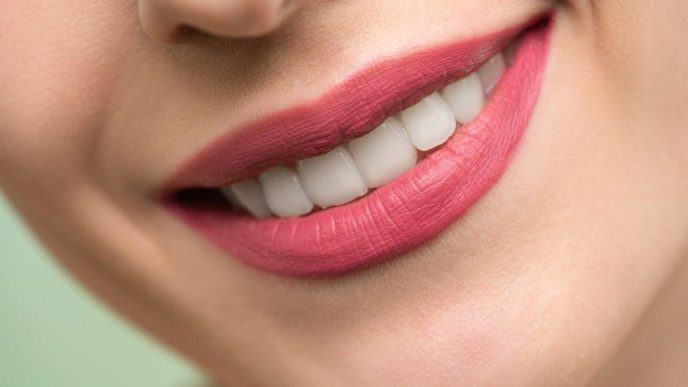When it comes to weight loss, many people turn to diets and exercise regimens, looking for the best solutions to shed unwanted pounds. One ingredient that has gained popularity in recent years for its potential weight loss benefits is extra virgin olive oil (EVOO). Often associated with heart health due to its high levels of monounsaturated fats, EVOO is now being hailed as a food that may also help with weight management. But can it really aid weight loss?
The Role of Fat in Weight Loss
At first glance, consuming more fat may seem counterintuitive when trying to lose weight. After all, fat is often blamed for contributing to weight gain. However, not all fats are created equal. Some fats, such as those found in extra virgin olive oil, can support weight loss when consumed in moderation.
Extra virgin olive oil is rich in monounsaturated fats, particularly oleic acid, which has been linked to numerous health benefits, including reduced inflammation and improved heart health. Unlike saturated fats in many processed foods, monounsaturated fats have been shown to positively affect metabolism and help the body use energy more efficiently.
Incorporating healthy fats like EVOO into your diet can also promote feelings of satiety, helping you feel fuller for longer. This reduction in hunger may lead to a natural reduction in calorie intake, making it easier to maintain a calorie deficit—one of the key factors in weight loss.
Boosting Metabolism with Extra Virgin Olive Oil
One way extra virgin olive oil can potentially aid weight loss is by boosting metabolism. EVOO is packed with polyphenols, powerful antioxidants that may have a thermogenic effect on the body. Thermogenesis is the process by which the body generates heat and burns calories. Some studies suggest that consuming EVOO could increase the rate at which your body burns fat, which can be particularly helpful for those looking to lose weight.
Additionally, extra virgin olive oil is a source of healthy fats that can help regulate blood sugar levels. When blood sugar levels remain stable, the body is less likely to store excess fat, making it easier for the body to burn fat as a fuel source.
Reducing Hunger and Controlling Appetite
One of the biggest challenges when losing weight is managing hunger and cravings. Many people find themselves snacking between meals or overeating because they feel unsatisfied after eating. Extra virgin olive oil may help with this issue by promoting feelings of fullness and reducing overall calorie intake.
Monounsaturated fats, like those found in EVOO, are digested more slowly than carbohydrates, which means they stay in the stomach longer, keeping you satisfied for longer periods. Adding extra virgin olive oil to your meals can reduce the likelihood of overeating and curb unnecessary snacking.
Furthermore, a study published in the American Journal of Clinical Nutrition found that consuming a Mediterranean diet rich in extra virgin olive oil helped participants reduce their hunger hormones, such as ghrelin, which triggers feelings of hunger. As a result, individuals who consumed EVOO as part of their daily diet reported feeling less hungry and were less likely to overeat.
Supporting Fat Burning and Fat Loss
In addition to boosting metabolism and reducing hunger, extra virgin olive oil may also support fat burning. A study conducted by the University of Jaén in Spain found that participants who included extra virgin olive oil in their diets experienced increased fat oxidation, meaning their bodies could burn fat more efficiently. This is a promising finding for those targeting stubborn fat and improving their body composition.
Extra virgin olive oil is also thought to activate certain enzymes that help break down fat cells. Incorporating this oil into your diet can stimulate the body’s natural fat-burning processes, which can support weight loss efforts.
How to Incorporate Extra Virgin Olive Oil into Your Diet
Incorporating extra virgin olive oil into your daily diet is relatively easy. Here are some simple and delicious ways to include EVOO in your meals:
- Use it as a dressing – Drizzle extra virgin olive oil over salads, roasted vegetables, or grains to add flavour and healthy fats.
- Cook with it – EVOO can be used for sautéing, frying, or roasting. Unlike refined oils, EVOO retains its beneficial properties even when cooked at moderate temperatures.
- Add it to smoothies – Add a tablespoon of EVOO to your smoothies for a dose of healthy fat that will keep you feeling full.
- Use it for dipping – Serve EVOO with whole grain bread or vegetable sticks for a healthy, satisfying snack.
While extra virgin olive oil is a healthy fat, it’s important to remember that it is still calorie-dense. A tablespoon of EVOO contains around 120 calories, so it’s important to use it in moderation to avoid consuming too many calories.
Myths and Facts About Extra Virgin Olive Oil and Weight Loss
Myth 1: Extra virgin olive oil will cause weight gain because it’s high in fat.
Fact: While olive oil is high in fat, it’s the type of fat that matters. Monounsaturated fats can help reduce hunger and promote feelings of fullness, making it easier to stick to a calorie deficit.
Myth 2: Olive oil is a magic bullet for weight loss.
Fact: Extra virgin olive oil can certainly support weight loss efforts, but it is not a miracle cure. Sustainable weight loss requires a balanced diet and regular exercise. EVOO should be considered part of a healthy eating plan, not a stand-alone solution.
Myth 3: Extra virgin olive oil should only be used in Mediterranean diets.
Fact: While extra virgin olive oil is a staple of the Mediterranean diet, it can be incorporated into any diet. Its health benefits are not restricted to a specific dietary pattern; it can be easily added to various cuisines.












